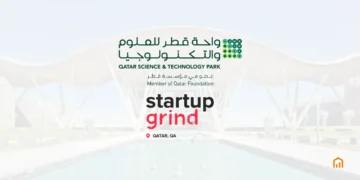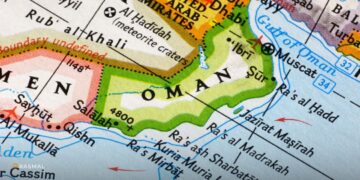The Middle East, with its dynamic economies and diverse cultures, has long been a magnet for ambitious professionals seeking international experience. The allure of tax-free salaries, fast-paced career growth, and the chance to live in a region undergoing rapid transformation continues to draw expats from around the globe. However, succeeding in the Middle Eastern job market requires more than just a stellar resume; it demands a strategic approach, cultural sensitivity, and a deep understanding of the nuances that set it apart from other regions.
This comprehensive guide is your roadmap to navigating the job search process in the Middle East, providing actionable strategies to help you land your dream role and thrive in your new environment. We’ll go beyond the basics, offering insights gleaned from industry experts and seasoned expats to give you a competitive edge.
Laying the Groundwork: Research and Self-Assessment
Before diving into job boards and networking events, take the time to lay a solid foundation. This involves two crucial steps:
Industry and Market Research
- Identify Thriving Sectors: Don’t just rely on outdated information. The Middle East is constantly evolving. Research current growth industries like:
- Renewable Energy: Driven by ambitious sustainability goals, countries like the UAE and Saudi Arabia are investing heavily in solar, wind, and hydrogen energy projects.
- Technology: Fintech, e-commerce, and digital transformation are booming. Look for opportunities in software development, data science, cybersecurity, and AI.
- Tourism and Hospitality: The region is investing heavily in tourism infrastructure and events, creating jobs in hospitality management, marketing, and event planning.
- Healthcare: Expanding healthcare systems and a growing demand for specialized medical services are fueling opportunities for medical professionals.
- Construction: Despite some fluctuations, large-scale infrastructure projects and real estate developments continue to drive demand for engineers, architects, and project managers.
- Country-Specific Analysis: Each country in the Middle East has its unique economic landscape.
- UAE: Known for its diversification, with strong sectors in tourism, finance, and trade.
- Saudi Arabia: Undergoing massive transformation under Vision 2030, with opportunities in technology, tourism, and infrastructure.
- Qatar: Leveraging its energy wealth to invest in education, healthcare, and infrastructure.
- Stay Updated: Follow industry news, subscribe to relevant publications, and attend webinars to keep abreast of the latest trends and developments.
Self-Assessment
- Skills Inventory: What are your core competencies? What unique skills can you bring to the table?
- Career Goals: What kind of role are you seeking? What are your salary expectations?
- Cultural Fit: Are you comfortable with the cultural norms and values of the Middle East? Are you willing to adapt?
Mastering the Online Job Search
Online platforms are essential for identifying job opportunities and making initial connections. Here’s how to make the most of them:
Top Job Boards
- LinkedIn: The leading professional networking platform. Optimize your profile, join relevant groups, and actively search for jobs.
- Bayt.com: A Middle East-focused job board with a vast database of listings across various industries.
- GulfTalent: Another popular platform specializing in connecting job seekers with employers in the Gulf region.
- Naukri Gulf: A well-established platform with a strong presence in the Indian subcontinent and the Middle East.
Optimize Your Online Presence
- Professional Profile Picture: Use a high-quality, professional headshot.
- Compelling Summary: Highlight your key skills, experiences, and achievements. Tailor it to the specific roles you’re targeting.
- Keywords: Use relevant keywords throughout your profile to increase visibility in search results.
- Showcase Your Work: Include links to your portfolio, website, or relevant projects.
- Request Recommendations: Ask former colleagues, supervisors, or clients to write recommendations highlighting your skills and work ethic.
Effective Job Search Strategies
- Targeted Searches: Use specific keywords and filters to narrow down your search results.
- Job Alerts: Set up job alerts to receive notifications about new openings that match your criteria.
- Company Research: Before applying for a job, research the company thoroughly. Understand its mission, values, and culture.
- Tailor Your Resume and Cover Letter: Customize your application materials to match the specific requirements of each job. Highlight your relevant skills and experiences.
The Power of Networking: Building Relationships in the Middle East
In the Middle East, personal connections are highly valued. Networking is not just about exchanging business cards; it’s about building genuine relationships based on trust and mutual respect.
- Where to Network:
- Industry Events: Attend conferences, trade shows, and workshops related to your field.
- Professional Associations: Join relevant professional organizations and participate in their activities.
- Alumni Networks: Connect with alumni from your university who are working in the Middle East.
- Social Media Groups: Engage in online communities related to your industry.
- Networking Etiquette:
- Be Respectful: Show genuine interest in others and their experiences.
- Be Patient: Building relationships takes time. Don’t expect immediate results.
- Follow Up: After meeting someone, send a thank-you note or connect with them on LinkedIn.
- Offer Value: Look for ways to help others in your network.
- Business Cards: Always carry business cards and present them with your right hand.
- Leveraging LinkedIn for Networking:
- Identify Key Contacts: Search for professionals in your industry, recruiters, and hiring managers.
- Personalized Connection Requests: Don’t send generic connection requests. Write a personalized message explaining why you want to connect.
- Engage with Content: Like, comment on, and share relevant content to build your visibility.
- Participate in Groups: Join industry-specific groups and participate in discussions.
- Direct Messaging: Use direct messaging to reach out to potential contacts and ask for advice or introductions.
Cultural Intelligence: Navigating the Nuances of the Middle East
Understanding and respecting the local culture is crucial for success in the Middle East. Cultural differences can impact everything from communication styles to workplace dynamics.
Key Cultural Considerations
- Islam: Religion plays a significant role in daily life. Be mindful of prayer times, dietary restrictions (Halal), and religious holidays.
- Hierarchy: Respect for authority and seniority is important.
- Relationship-Oriented: Building personal relationships is key to business success.
- Indirect Communication: Communication can be subtle and indirect. Pay attention to non-verbal cues.
- Hospitality: Hospitality is highly valued. Be prepared to accept invitations to social events.
- Dress Code: Dress modestly, especially in more conservative areas.
Developing Cultural Intelligence
- Research: Read books, articles, and blogs about Middle Eastern culture.
- Language Learning: Learning basic Arabic phrases can demonstrate respect and facilitate communication.
- Cultural Training: Consider attending cultural sensitivity training programs.
- Observation: Pay attention to how people interact and communicate in different settings.
- Ask Questions: Don’t be afraid to ask questions to clarify any cultural misunderstandings.
- Embrace Differences: Be open-minded and willing to learn from others.
The Application Process: Making a Strong Impression
Your resume and cover letter are your first chance to make a positive impression on potential employers. Tailor your application materials to showcase your relevant skills and experience while demonstrating your understanding of the local market.
- Resume Tips:
- Professional Format: Use a clean, easy-to-read format.
- Highlight Relevant Experience: Focus on skills and experiences that are relevant to the specific job.
- Quantify Achievements: Use numbers and metrics to demonstrate your impact.
- Language Skills: Highlight your proficiency in English and Arabic.
- References: Provide references from previous employers who can vouch for your skills and work ethic.
- Cover Letter Tips:
- Personalized: Address the cover letter to a specific person whenever possible.
- Highlight Your Value: Explain why you are a good fit for the job and how you can contribute to the company’s success.
- Show Your Knowledge: Demonstrate your understanding of the company and the industry.
- Proofread Carefully: Ensure your cover letter is free of errors in grammar and spelling.
- Dealing with Local Requirements:
- Visa Sponsorship: Understand the visa requirements for working in the Middle East.
- Labor Laws: Familiarize yourself with local labor laws and regulations.
- Certifications: Obtain any necessary certifications or licenses required for your profession.
Interview Strategies: Showcasing Your Skills and Cultural Fit
The interview is your opportunity to showcase your skills, experience, and cultural fit. Prepare thoroughly and be ready to answer questions about your qualifications, career goals, and understanding of the Middle Eastern market.
- Preparation:
- Research the Company: Understand its mission, values, and culture.
- Practice Answering Common Interview Questions: Prepare answers to questions about your strengths, weaknesses, career goals, and experience.
- Prepare Questions to Ask the Interviewer: Asking thoughtful questions demonstrates your interest and engagement.
- Dress Professionally: Dress conservatively and appropriately for the local culture.
- Interview Etiquette:
- Be Punctual: Arrive on time for the interview.
- Greet Respectfully: Use appropriate greetings and address the interviewer by their title (e.g., Mr., Ms., Dr.).
- Maintain Eye Contact: Maintain eye contact to show confidence and engagement.
- Listen Attentively: Listen carefully to the interviewer’s questions and provide thoughtful answers.
- Be Polite and Respectful: Show respect for the interviewer and the company.
- Express Gratitude: Thank the interviewer for their time and consideration.
- Addressing Cultural Considerations:
- Be Aware of Non-Verbal Cues: Pay attention to body language and non-verbal cues.
- Be Patient and Understanding: Communication can be indirect. Be patient and ask clarifying questions if needed.
- Show Respect for Local Customs: Be mindful of local customs and traditions.
- Highlight Your Adaptability: Emphasize your ability to adapt to new cultures and environments.
Working with Recruitment Agencies: An Expedited Approach
Navigating the Middle Eastern job market can be challenging, especially for expats unfamiliar with the local customs and practices. Recruitment agencies serve as invaluable partners in the job search process, offering specialized expertise and guidance.
Advantages of Using Recruitment Agencies
- Industry Expertise: Recruitment agencies possess in-depth knowledge of specific industries, market trends, and employer requirements.
- Extensive Networks: Agencies have established relationships with companies, often gaining access to unadvertised positions.
- Streamlined Process: Agencies manage the initial screening, interviews, and paperwork, saving you time and effort.
- Negotiation Support: Recruiters can assist with salary negotiations and benefits packages, ensuring a fair deal.
Finding Reputable Agencies
- Online Research: Search online for recruitment agencies specializing in your industry and location.
- Check Reviews: Read online reviews and testimonials to gauge the agency’s reputation and success rate.
- Ask for Referrals: Seek recommendations from colleagues or acquaintances who have used recruitment agencies in the past.
Maximizing Your Agency Relationship
- Communicate Your Goals: Clearly convey your career aspirations, skills, and desired salary range.
- Provide a Detailed Resume: Ensure your resume is comprehensive, highlighting relevant experience and achievements.
- Stay in Touch: Maintain regular contact with your recruiter, providing updates on your job search progress.
- Be Open to Feedback: Listen to your recruiter’s advice on resume optimization, interview techniques, and market expectations.
- Respond Promptly: Respond to your recruiter’s emails and phone calls promptly, demonstrating your professionalism and eagerness.
Visa and Relocation Assistance
Understanding the visa requirements and relocation process is crucial for a smooth transition to the Middle East.
- Visa Requirements:
- Research Visa Options: Research the different types of visas available for working in the Middle East, such as employment visas, residence visas, and business visas.
- Gather Required Documents: Collect all necessary documents, such as passport, educational certificates, and work experience letters.
- Obtain Sponsorship: Secure sponsorship from a company or employer who will handle your visa application.
- Relocation Assistance:
- Accommodation: Research accommodation options in your chosen city, such as apartments, villas, and serviced residences.
- Transportation: Familiarize yourself with the local transportation system, including public transportation, taxis, and ride-sharing services.
- Banking: Open a bank account in the local currency to manage your finances.
- Healthcare: Obtain health insurance coverage and register with a local healthcare provider.
- Education: If you have children, research international schools and childcare facilities.
Continuous Learning and Development
The Middle Eastern job market is constantly evolving. To stay competitive, it’s essential to invest in continuous learning and development.
- Stay Updated with Industry Trends: Follow industry news, attend conferences, and subscribe to relevant publications.
- Acquire New Skills: Take online courses, attend workshops, or pursue certifications to enhance your skills and knowledge.
- Network with Industry Leaders: Connect with industry leaders and mentors to learn from their experiences and insights.
- Seek Feedback: Ask for feedback from your supervisors, colleagues, or mentors to identify areas for improvement.
Maintaining a Positive Mindset and Resilience
The job search process can be challenging and time-consuming. It’s important to maintain a positive mindset and resilience throughout the journey.
- Stay Motivated: Set realistic goals, celebrate small successes, and reward yourself for your efforts.
- Seek Support: Connect with friends, family, or other expats who can provide emotional support.
- Learn from Rejection: Don’t take rejection personally. Use it as an opportunity to learn and improve your approach.
- Stay Persistent: Don’t give up on your job search. Keep applying, networking, and learning.
Conclusion
Finding a job in the Middle East as an expat requires a strategic approach, cultural intelligence, and a willingness to adapt. By following the strategies outlined in this guide, you can increase your chances of landing your dream role and thriving in your new environment. Remember to stay updated with industry trends, network effectively, and maintain a positive mindset throughout the job search process.
Last Updated on March 4, 2025 by Safiya K
























